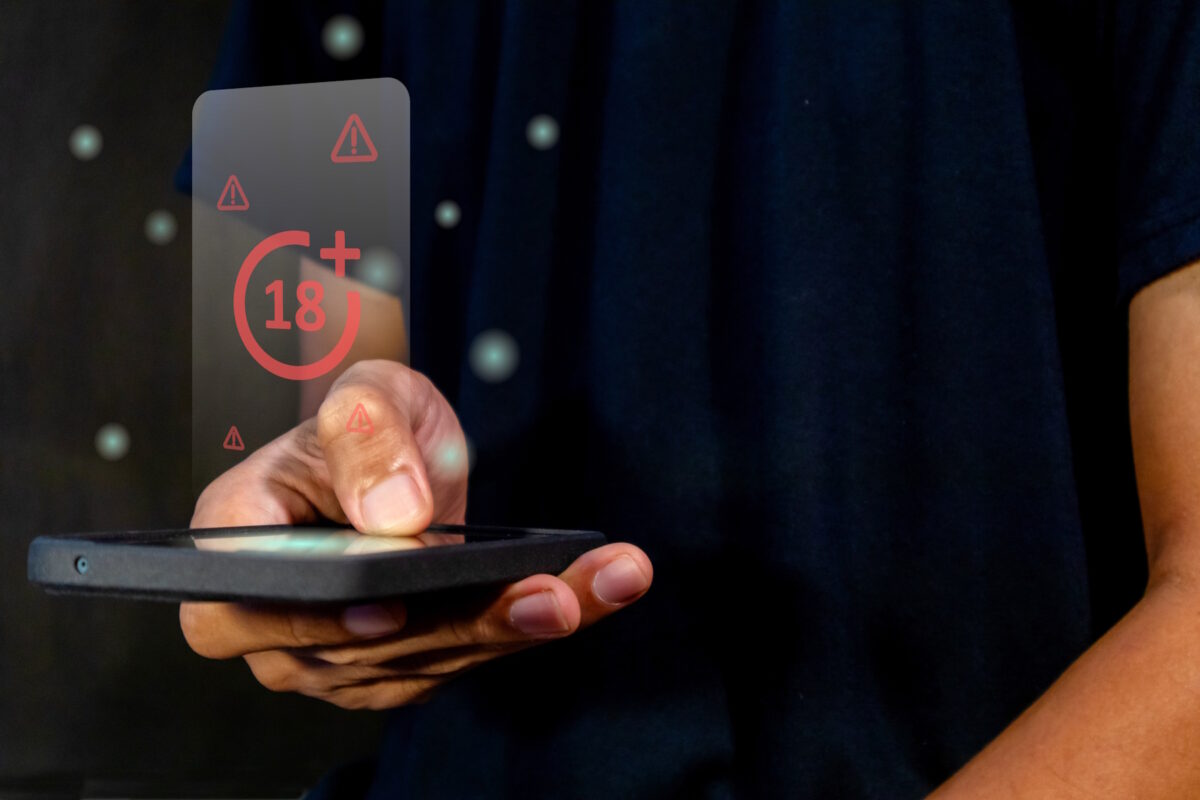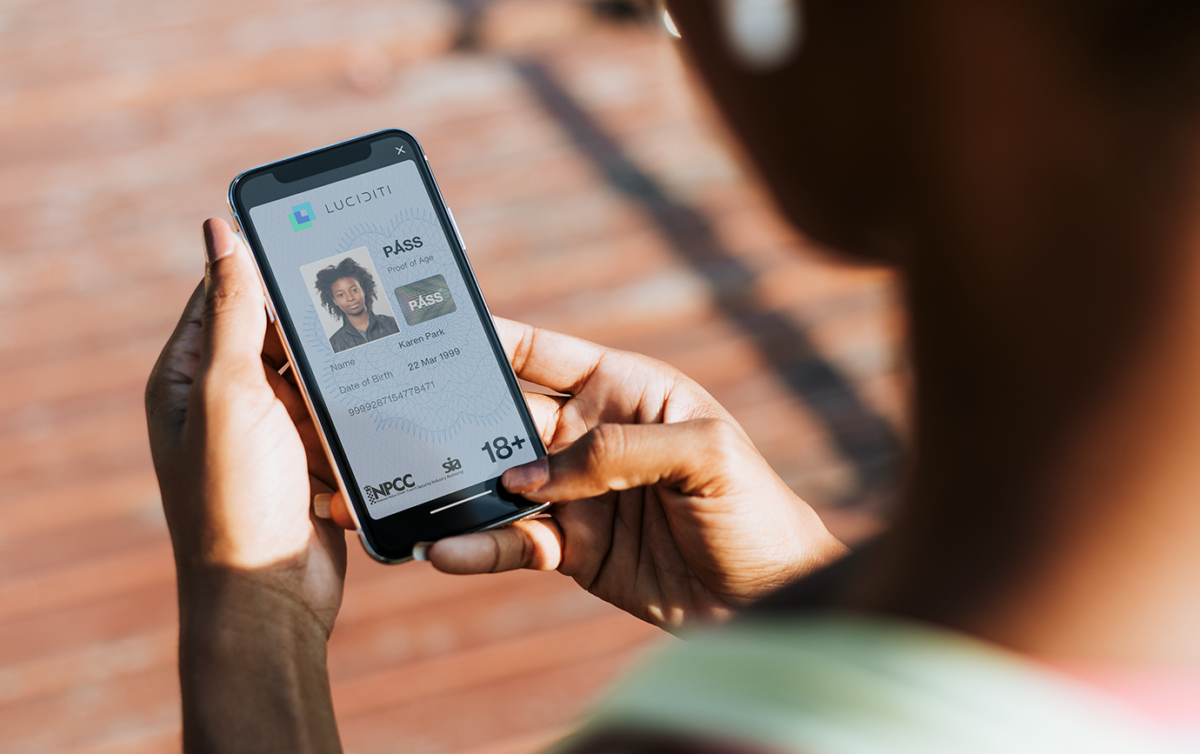Online platforms that show adult content to UK users must introduce age checks by July 2025, under tough new guidelines from Ofcom. The measures explain in practice how websites and apps will have to comply with the Online Safety Act (2023) to stop children finding online pornography.
Children are exposed to adult content from an early age. Research suggests that, among those who have seen it, the average age they first encounter it is 13 – although more than a quarter have seen it by age 11 (27%), and one in 10 as young as nine (10%).
Creating a safer online environment
According to Ofcom, the vast majority of adults (80%) are broadly supportive of age assurance measures to stop children seeing pornography. Age checks will be enforced under the Online Safety Act (OSA), which aims to make the internet a safer environment for UK users, particularly children.
Providers of adult content who publish or produce pornography are covered under Part 5 of the OSA. Under Ofcom’s new guidelines, they need to be implementing highly effective age assurance and restricting access to their site as soon as possible and by July at the latest.
Services covered by the Part 5 guidelines will principally include platforms that publish pornographic content under their own control, such as studios and pay sites, (as opposed to user-generated content). Part 3 of the OSA, covering social media platforms, user-to-user sites and search engines, must comply with a separate set of guidelines from Ofcom, as explained here.
Identifying relevant providers
The guidelines for Part 5 services apply to providers who meet three conditions:
1. pornographic content is published or displayed on their service.
2. the service is not exempt from the OSA.
3. the service has links to the UK.
Condition 1: Under the OSA, a provider of adult content means the entity or individual who controls what is seen on an internet service. Content is pornographic if it is “reasonable to assume that it was produced solely or principally for the purpose of sexual arousal.” This can include still and moving images, audio and audio-visual content, and artificial images whether animated or created by AI.
Condition 2: Pornographic content is not covered by Part 5 if it:
• is user-generated, (in which case it is subject to Part 3).
• consists only of text, or text accompanied by a GIF or emoji (which are not pornographic).
• is an on-demand programme service, for example a pornographic subscription channel.
• is an internal business service (ie intranet services) that meets specific requirements.
Condition 3: Part 5 only applies if a provider “has links with the United Kingdom.” A link with the UK exists if either:
• the service has a significant number of UK users.
or
• UK users form one of the target markets for the service, or the only target market.
The Act does not define what is meant by a “significant number” of UK users. But Ofcom is likely to reject exemption claims made on the basis that a provider only has a relatively small user base. Under the guidelines, Ofcom suggests providers should “err on the side of caution” when assessing whether they have a significant number of UK users.
While “target market” is not defined by the Act, the guidelines confirm that a service would be seen to be targeting the UK if any of the following apply:
• it is marketed toward UK users.
• generates revenue from UK users.
• includes content that is tailored for UK users.
• has a UK domain or provides a UK contact address and/or phone contact number.
An online service may include adult material that falls under Part 3 (eg user-generated content) along with other material (perhaps shot in a studio) that is covered by Part 5. The separate guidelines covering Part 3 services require platforms to carry out a children’s access assessment by 16 April 2025 to establish whether their service is likely to be accessed by children.
Ofcom has confirmed that “services such as tube, cam and fan sites will be covered by both Part 3 and Part 5 guidance. These services must carry out children’s access assessments by 16 April.” Providers unsure whether Part 5 of the OSA applies to them can use Ofcom’s online tool.
Enforcement programme
Part 5 providers must use age assurance (verification, estimation, or both) to ensure that children are not able to see pornographic content. Age assurance tech must be “highly effective” at determining whether a user is a child, and it must ensure that children are prevented from seeing adult content.
All Part 5 services must have highly effective age assurance processes in place by July 2025. The same deadline also applies to Part 3 providers that allow user-generated adult content.
For Part 5 services, specifically, the requirement to adopt age assurance came into effect on 17 January 2025. Ofcom immediately opened an “enforcement programme”, examining progress towards age assurance across the adult content sector. It is also writing to all Part 5 providers, asking for an update on the age assurance measures they’re considering.
Ofcom said, “We will contact a wide range of adult services – large and small – to advise them of their new obligations and monitor their compliance. We will not hesitate to launch investigations and take enforcement action against services that do not comply.”
Determining highly effective age assurance
Providers can either develop their own in-house age assurance or they can buy third party tech. Partnering with an age assurance specialist, such as Luciditi, would allow them to easily embed AI-powered age assurance into their website. Providers must ensure that no pornographic content can be seen before users verify their age.
An age assurance method is highly effective only if it meets each of four criteria:
• It is technically accurate – evaluated against appropriate metrics.
• It is robust – can correctly determine the age of a user in a range of real-world settings.
• It is reliable – is shown to be consistent, particularly when involving AI or machine learning.
• It is fair – minimises bias and discriminatory outcomes.
Providers will need to adopt an age assurance method that Ofcom considers to be reliable, such as:
• Open banking
• Photo-identification matching
• Facial age estimation
• Mobile-network operator age checks
• Credit card checks
• Email-based age estimation
• Digital identity services
These options are explained in more detail in our accompanying article on the Part 3 guidelines, along with methods that Ofcom regards as unreliable. Whichever method is adopted, Ofcom says it should be easy to use without unduly preventing adult users from accessing legal content.
Keeping accurate records
Any reliable age assurance process will likely include both estimation and verification, and as such will be subject to the UK’s data protection laws. For this reason, Part 5 providers must keep accurate records, detailing:
• the kinds of age verification or estimation used, and how they are used.
• how UK users will be protected from a breach of privacy (for example relating to personal data).
Providers must summarise their records in a publicly available statement, which must explain their chosen method of age assurance. Ofcom’s guidelines on privacy are further explained in our article on Part 3 providers.
Ofcom aims to ensure that the internet in the UK will soon be safer for children. This means that providers need to be thinking about the changes that are required by law. The new guidelines can be seen as fleshing out the OSA under which Ofcom has the power to fine repeat offenders up to £18 million, or 10% of qualifying worldwide revenues (whichever is greater).
Melanie Dawes, Ofcom’s Chief Executive, said: “For too long, many online services which allow porn and other harmful material have ignored the fact that children are accessing their services. Either they don’t ask or, when they do, the checks are minimal and easy to avoid. That means companies have effectively been treating all users as if they’re adults, leaving children potentially exposed to porn and other types of harmful content. Today, this starts to change.”
Want to know more?
Luciditi technology can help meet some of the challenges presented by the OSA. If you would like to know more, Contact us for a chat today.





